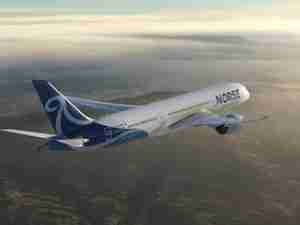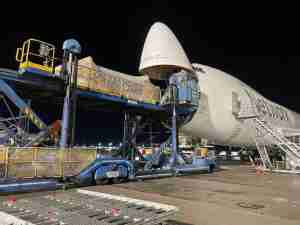Delta Air Lines Inc. spurred a rally among airline and leisure stocks as it said a strong rebound in summer travel bookings will help the carrier overcome rising fuel costs and a slow return of business travel.
While the airline posted a first-quarter loss, it stood firm with previous projections that it would be profitable for the year’s remaining periods. Delta is sensitive to the risk that fare hikes will erode demand but sees no sign that’s happening.
“Through the early part of the summer, the booking activity has been quite strong,” Delta Chief Executive Officer Ed Bastian said in an interview. “For the last month we have seen the highest sales and booking activity on Delta than at any time in our history” despite offering only 90% of its pre-pandemic seats for sale.
Robust reservations have helped the industry cushion the blow of higher fuel prices, which have soared 155% since March 1, after Russia invaded Ukraine. Those increased expenses, particularly in the Northeast, have threatened to erode industry profits. But Delta and other carriers have throttled back the number of available seats to boost prices and continue to expect that summer demand could exceed pre-pandemic levels.
The confidence expressed by Delta, the first major carrier to report first-quarter results, lifted shares across the industry. Delta advanced 4.3% to $40.28 at 11:02 a.m. in New York, while Standard & Poor’s index of nine airlines rose 5.8%. Other leisure-related stocks jumped as well, including SeaWorld Entertainment Inc., Carnival Corp. and Caesars Entertainment Inc.
“Demand remains strong as Covid continues to recede and countries eliminate testing and quarantine requirements,” Cowen analyst Helane Becker said in a note to clients. Delta’s “business travel is improving, with domestic corporate sales 70% recovered in the month of March.”
She projected strong international traffic on the North Atlantic for this summer.
Indeed, trans-Atlantic business already “is returning robustly,” Delta President Glen Hauenstein said on a conference call with analysts.
Delta has said it would have no trouble raising fares to cover fuel prices this quarter and possibly through the summer. Each increase of 1 cent a gallon adds $40 million to the carrier’s annual costs, according to a regulatory filing.
Challenges Remain
The airline’s rosy outlook notwithstanding, the industry isn’t out of the woods. Deutsche Bank analyst Michael Linenberg has predicted that 11 U.S. airlines will record a pretax loss of as much as $6.2 billion for the quarter.
And while domestic leisure demand is around 2019 levels for many carriers, U.S. corporate travel remains as much as 40% below where it was before the Covid-19 pandemic, according to Jefferies analyst Sheila Kahyaoglu. International travel from big companies has lagged behind a broader economic recovery as businesses have been slow to send workers back to offices. Also, much of Asia is closed to inbound passengers.
Delta reported an adjusted first-quarter loss of $1.23 a share, narrower than the average $1.26 deficit according to analyst estimates compiled by Bloomberg. Revenue was $8.16 billion, while Wall Street estimated $8.12 billion.








